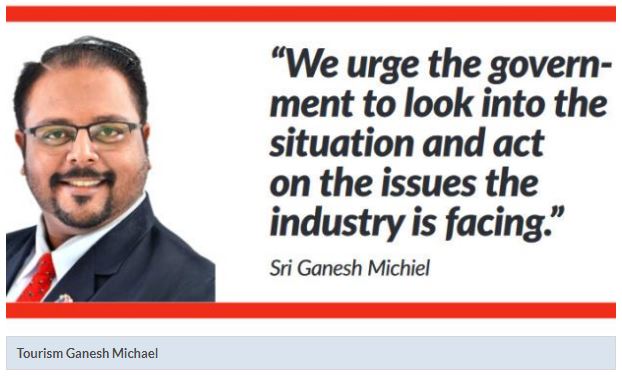Malaysia: Solutions needed for tourism industry
PETALING JAYA: Hotel operators are operating at their “bare minimum, ” according to the Malaysian Association of Hotels (MAH), following a near full-year of steady losses as a result of the Covid-19 pandemic.
MAH chief executive officer Yap Lip Seng (pic below) said the implementation of the recent movement control order (MCO) will further exacerbate conditions.
“The hotel industry is currently operating at a bare minimum after sustaining losses for almost a year.
“While it might not be able to retrench any more, to survive, hotels will need to cut costs where possible, including more unpaid leave and extended pay cuts.
“With little or no revenues, employers will not be able to pay salaries, ” he told StarBiz.
Since the pandemic last year, Yap said around 6% of total hotel sector staff had already been laid off.
“Since the beginning of the pandemic last year, hotels have had to close. Some permanently, some temporarily and new ones delaying their opening with high hopes of doing so in 2021.
“But here we are in January 2021 and the industry is plagued yet again with another MCO and travel restrictions.”
Yap added that the situation will unfortunately and inevitably result in more job losses.
“Hotels are again forced to decide if they should remain open or cease operations, not knowing how long the restrictions will last.
“In addition to that, closed hotels will further postpone reopening and new ones will not be able to do so.”
Yap said the current wage subsidy programme was insufficient and was the main reason for unemployment rates going up within the tourism industry.
“We have repeated this multiple times to the government and with the situation worsening, we need a higher wage subsidy of 50% for those earning up to RM4,000 and 30% for those up to RM8,000 in order for employers to retain jobs of the people.”
The MCO was reinstated from last Wednesday until Jan 26 in Selangor, Johor, Penang, Melaka, Sabah and the federal territories of Kuala Lumpur, Putrajaya and Labuan, following a sharp increase in Covid-19 cases.
Meanwhile, Malaysia Budget Hotel Association national deputy president Sri Ganesh Michiel said the hotel and tourism industry will once again be affected by the enforcement of the implementation of the MCO.
“We urge the government to look into the situation seriously and act fast towards the issues that the industry is facing or will face in the coming future.
“Even though the MCO will be enforced for 14 days, it will have a huge impact on the recovery period of the hotel and tourism industry, ” he said in a statement.
Meanwhile, Tourism Malaysia revealed last month that Malaysia recorded 4,299,419 tourists from January until September 2020.
This was a decrease of 78.6% compared with the same period the previous year, where Malaysia recorded over 20.1 million tourist arrivals.
“For the same period, Malaysia received a total of RM12.6bil, a decrease of 80.9% compared with RM66.1bil received the previous year.
“Similarly, the per capita expenditure showed a decline of 10.7% from RM3,289.30 in 2019 to RM2,938.40 last year, ” said Tourism Malaysia.
The Top 10 tourist generating markets continue to be dominated by Singapore (1,543,627), Indonesia (710,118), China (403,055), Thailand (372,075), India (155,448), Brunei (135,848), South Korea (119,364), Japan (73,891), Australia (72,369) and the Philippines (65,601).
Source: https://www.thestar.com.my/business/business-news/2021/01/18/solutions-needed-for-tourism-industry


 English
English





